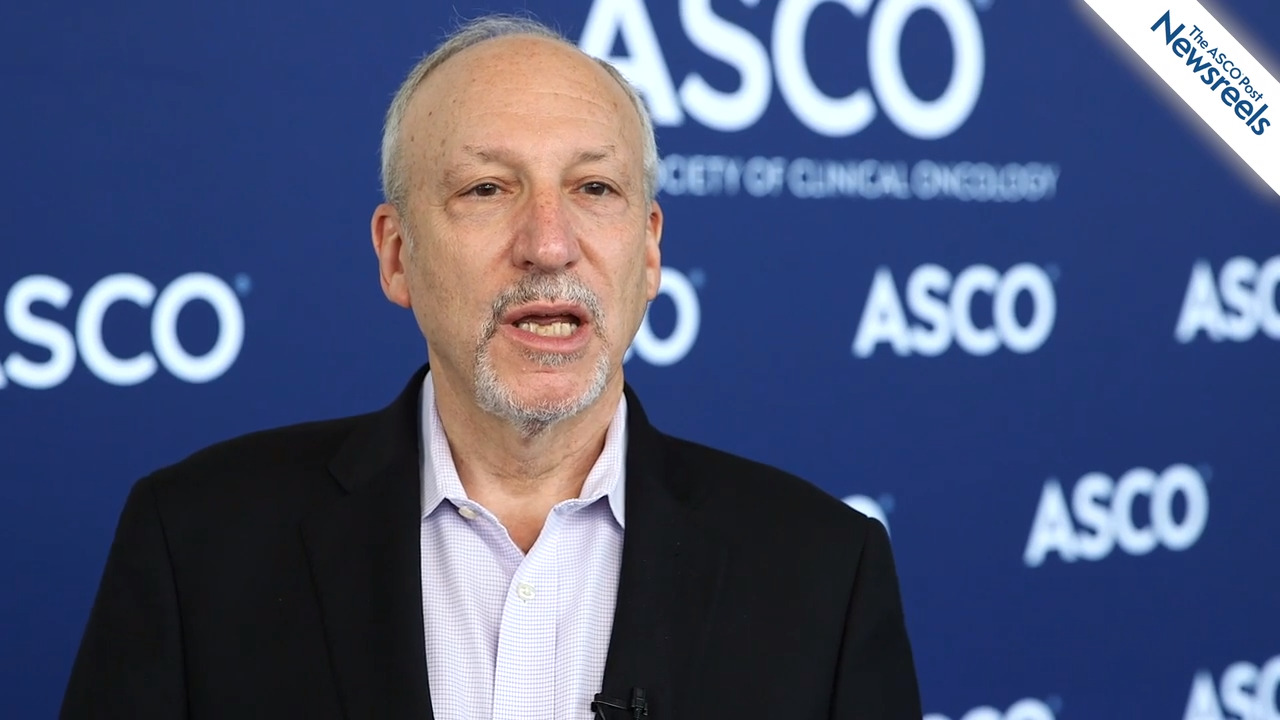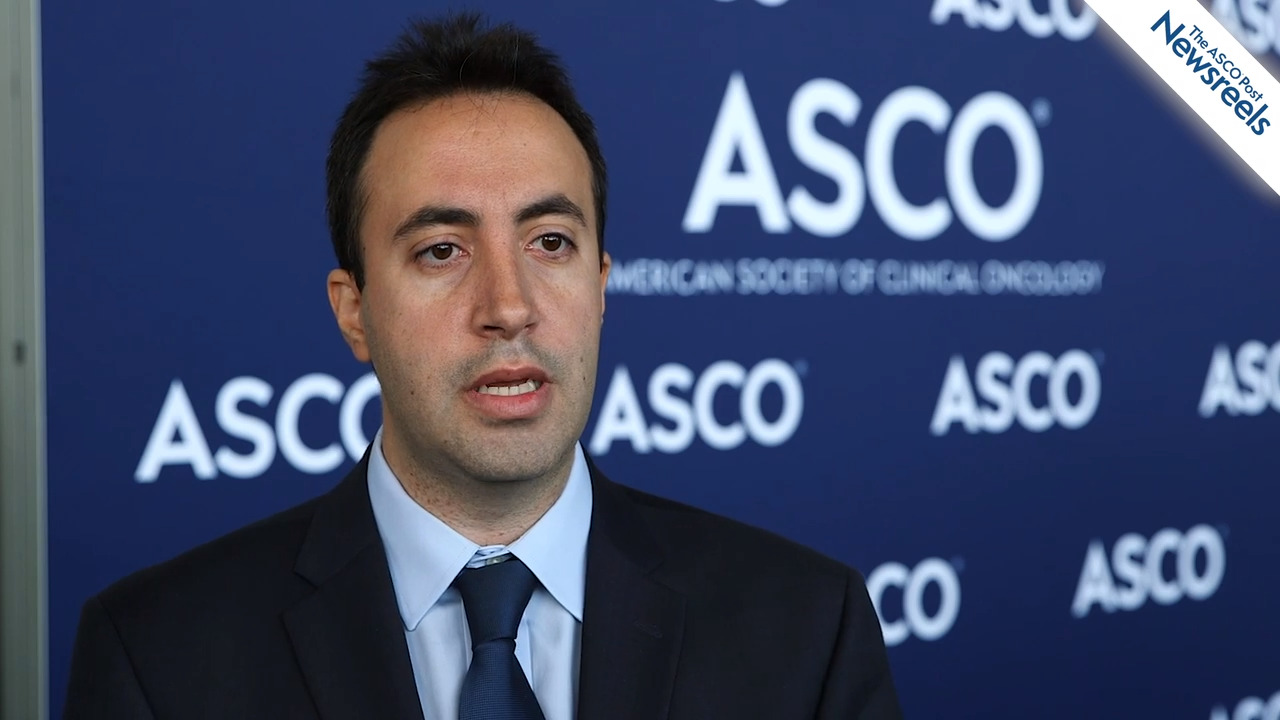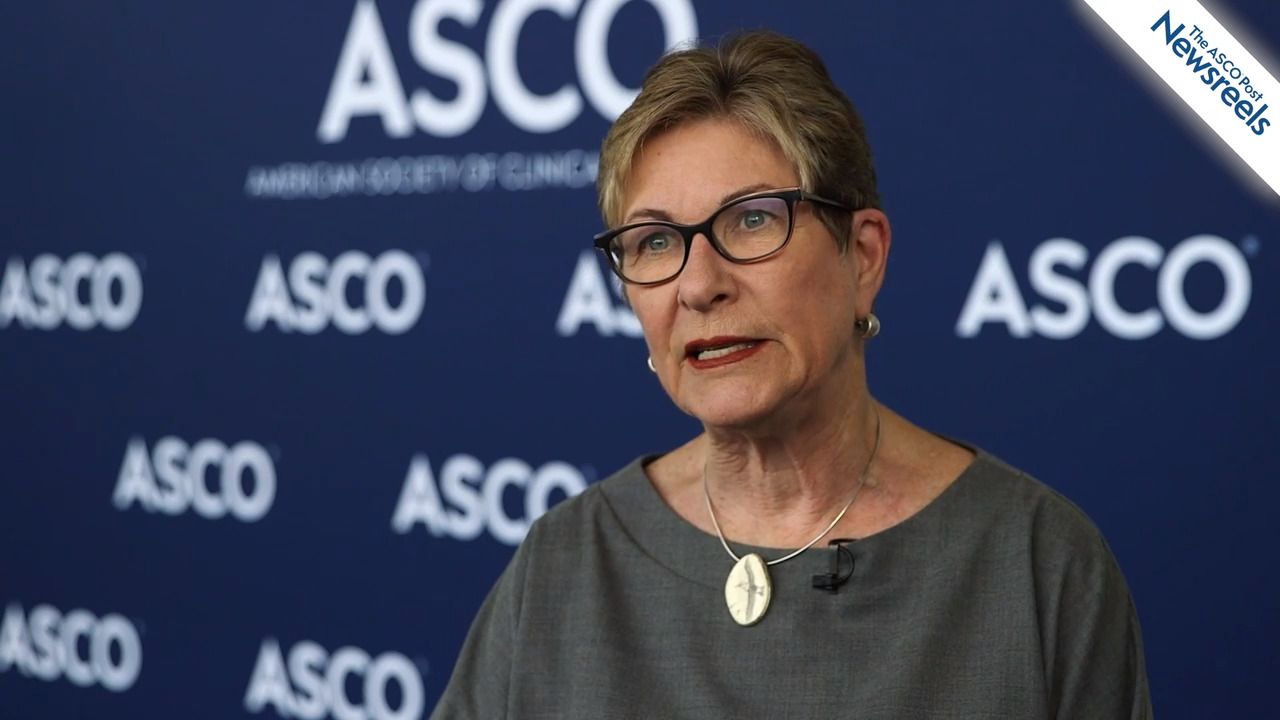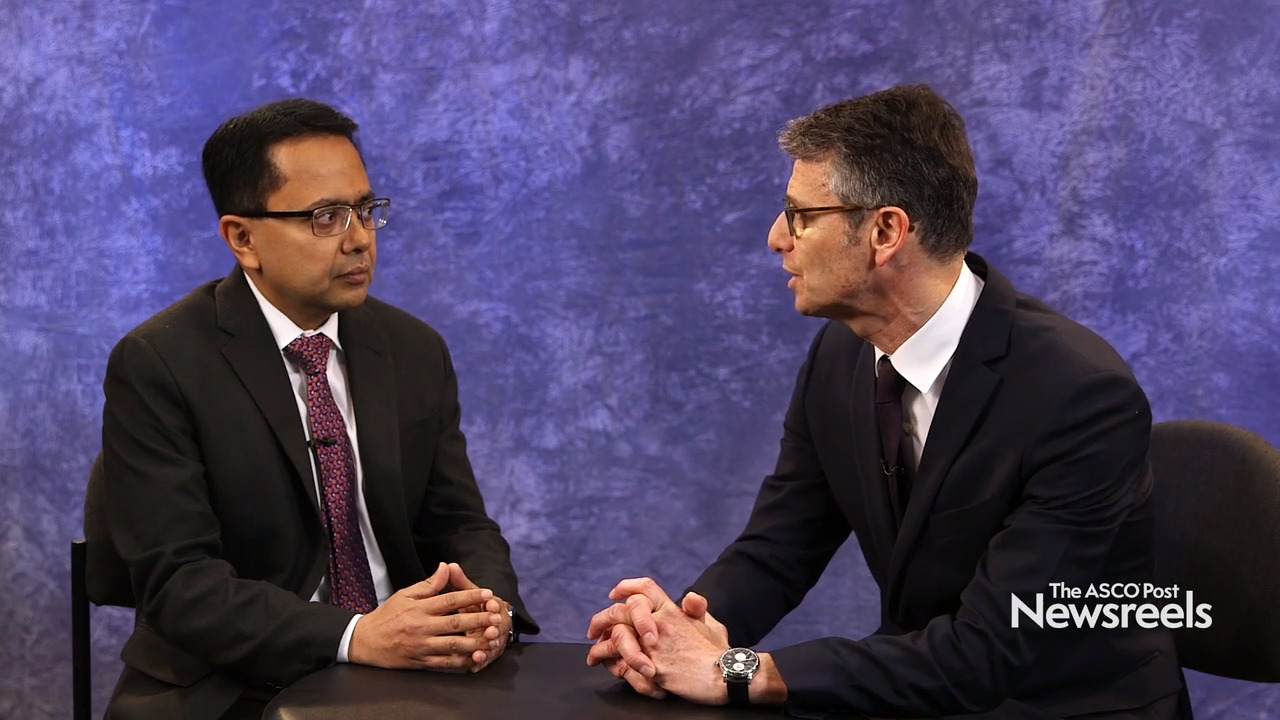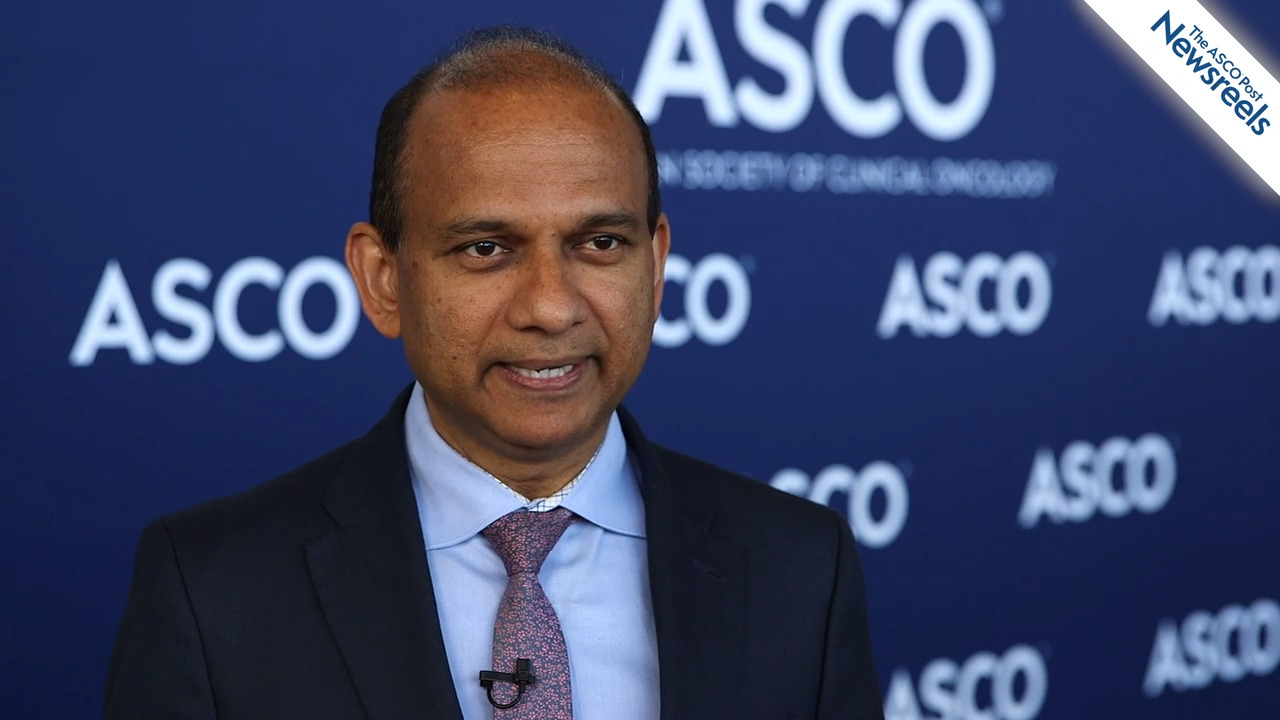Taofeek Kunle Owonikoko, MD, PhD, on Small Cell Lung Cancer: Tremelimumab and Durvalumab With or Without Radiation
2019 ASCO Annual Meeting
Taofeek Kunle Owonikoko, MD, PhD, of Emory University, discusses the findings of his phase II study, which assessed the efficacy of combined immune checkpoint inhibitors with or without radiation in relapsed small cell lung cancer (Abstract 8515).
Lee S. Schwartzberg, MD, of the West Cancer Center, reports on this past year’s progress of the ACCC initiative to speed adoption of immunotherapeutics in community practices.
Kamal Chamoun, MD, of University Hospitals Seidman Cancer Center, discusses how better insurance coverage determines not only the ability of patients with multiple myeloma to afford high-priced oral medications, but their survival of the disease (Abstract LBA107).
Margaret A. Tempero, MD, discusses phase III results from the multicenter APACT trial, which showed that adjuvant nab-paclitaxel plus gemcitabine may be an option for patients who are ineligible for treatment with FOLFIRINOX (Abstract 4000).
Neeraj Agarwal, MD, of the Huntsman Cancer Institute, and Arnaud Méjean, MD, PhD, of the Hôpital Européen Georges-Pompidou, Paris Descartes University, discuss an update to the CARMENA trial with new phase III study results on the benefit of cytoreductive nephrectomy followed by sunitinib vs sunitinib alone in metastatic renal cell carcinoma (Abstract 4508).
Jame Abraham, MD, of the Cleveland Clinic, provides commentary on the NALA study findings on neratinib plus capecitabine vs lapatinib plus capecitabine in patients previously treated with HER2-positive metastatic breast cancer (Abstract 1002).
